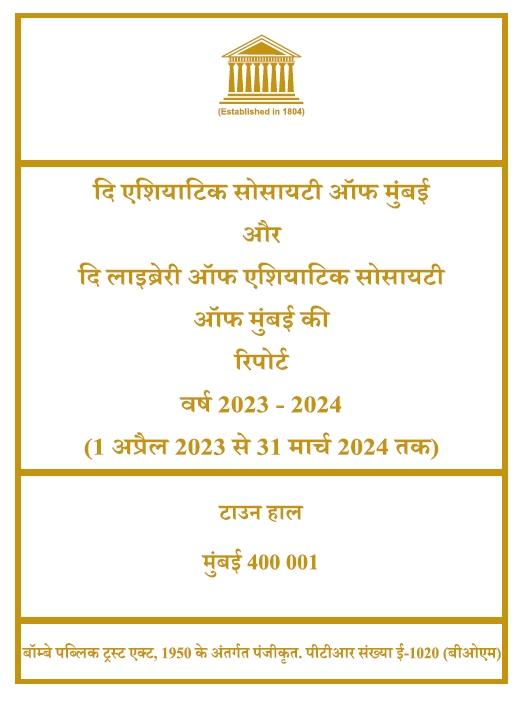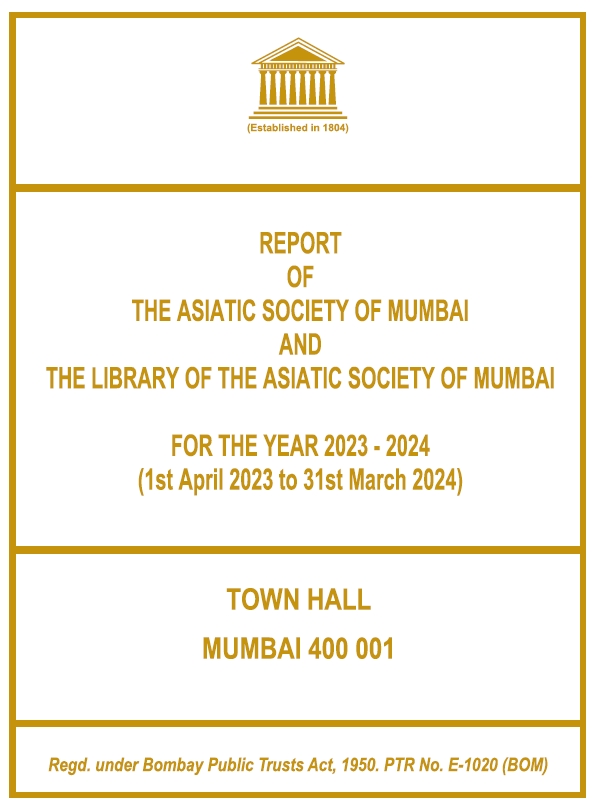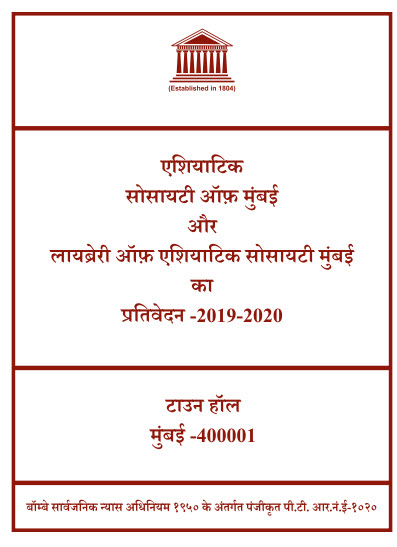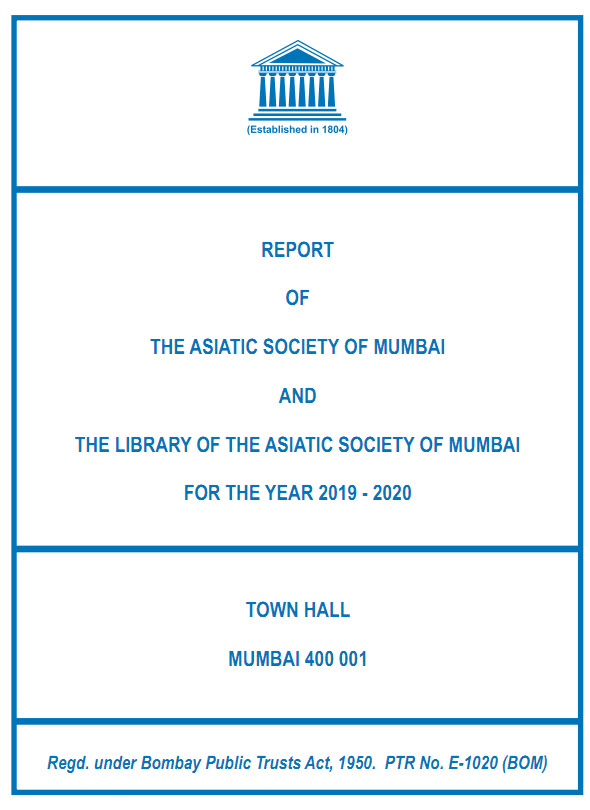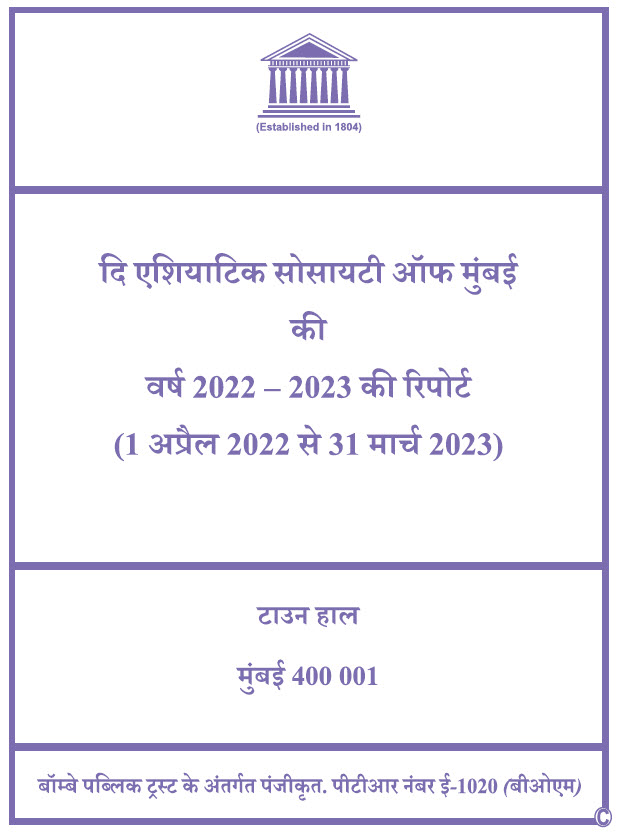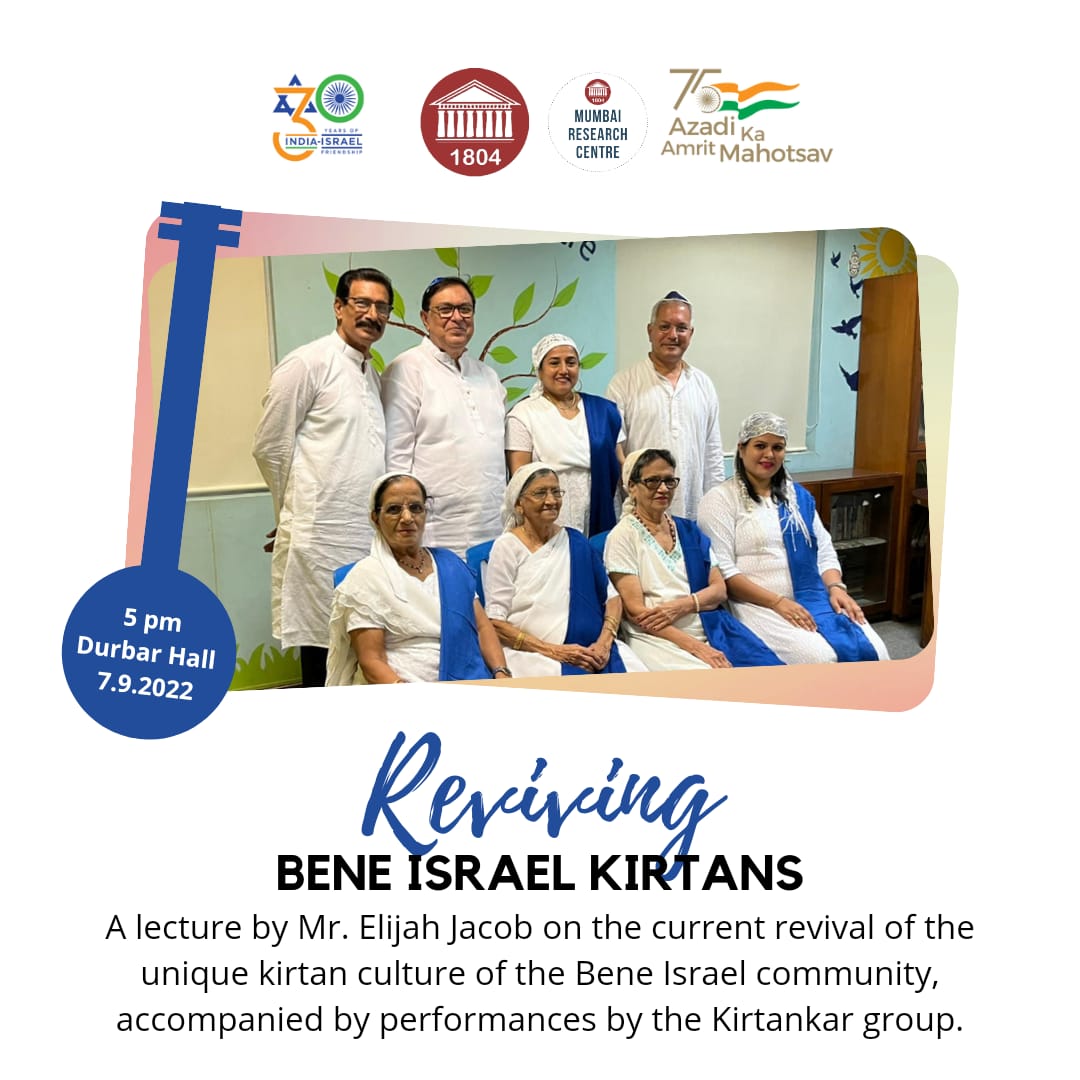 The kirtan, as a didactic tool combining stories and philosophical discourse with song dates back to at least the 13th century on Maharashtra. It was adopted by the Bene Israel after hearing a “trance-inducing” kirtan by the Hindu kirtankar Raosaheb Shankar Panduranga Pandit as a means to teach Jewish texts. This led to the founding of the Kirtanotejak Mandal in 1880, followed by the performance of the first Bene Israel kirtan "Abraham Charitra" by Benjamin Shimshon Ashtamkar. Despite some early resistance, Bene Israel kirtans began to draw large crowds, and kirtankars were in demand at naming ceremonies, weddings and housewarming parties. Between 1880 and 1960 approximately 42 kirtans became part of the repertoire.
The kirtan, as a didactic tool combining stories and philosophical discourse with song dates back to at least the 13th century on Maharashtra. It was adopted by the Bene Israel after hearing a “trance-inducing” kirtan by the Hindu kirtankar Raosaheb Shankar Panduranga Pandit as a means to teach Jewish texts. This led to the founding of the Kirtanotejak Mandal in 1880, followed by the performance of the first Bene Israel kirtan "Abraham Charitra" by Benjamin Shimshon Ashtamkar. Despite some early resistance, Bene Israel kirtans began to draw large crowds, and kirtankars were in demand at naming ceremonies, weddings and housewarming parties. Between 1880 and 1960 approximately 42 kirtans became part of the repertoire.
Kirtans stared to decline in the 1960s as many Bene Israel emigrated to Israel. Mrs. Flora Samuel in Israel and Mrs. Rachel Gadkar in India had briefly revived it in the 1990s, but sustained revival only began in 2015. This lecture by Elijah Jacob will delve into the recent history of revival, accompanied by recitals of a few notable kirtans.
Mr. Elijah Samson Jacob completed his B.Sc-Tech from UDCT in 1984 and went on to work in the corporate sector till 1993. Wanting to switch to the social sector, he trained in NGO management at the Golda Meir Training Institute, Haifa, Israel in 1994. Joining the American Jewish Joint Distribution Committe, he independently handled and executed the set-up of Bayiti Old Age Home in 1996 and the Evelyn Peters Jewish Community Centre in 1999 under the aegis of AJDC, New York. He was the long term Country Manager of the AJJDC India, and retired as its Executive Director in 2021. He was also trustee of the Gabriel Project Charitable Trust till March’2019.
A founding member of the Jewish Religious Union Youth Group in 1979, he is currently Vice-President of the Shalom Alumni Club under the aegis of the Israeli Consulate, Mumbai; Trustee of the Indian Joint Trust (the Indian arm of the AJJDC);
Chairman of the Services Committee of the Jewish Religious Union, Mumbai; and life member of the Jewish Religious Union and Tipheret Israel Synagogue.















